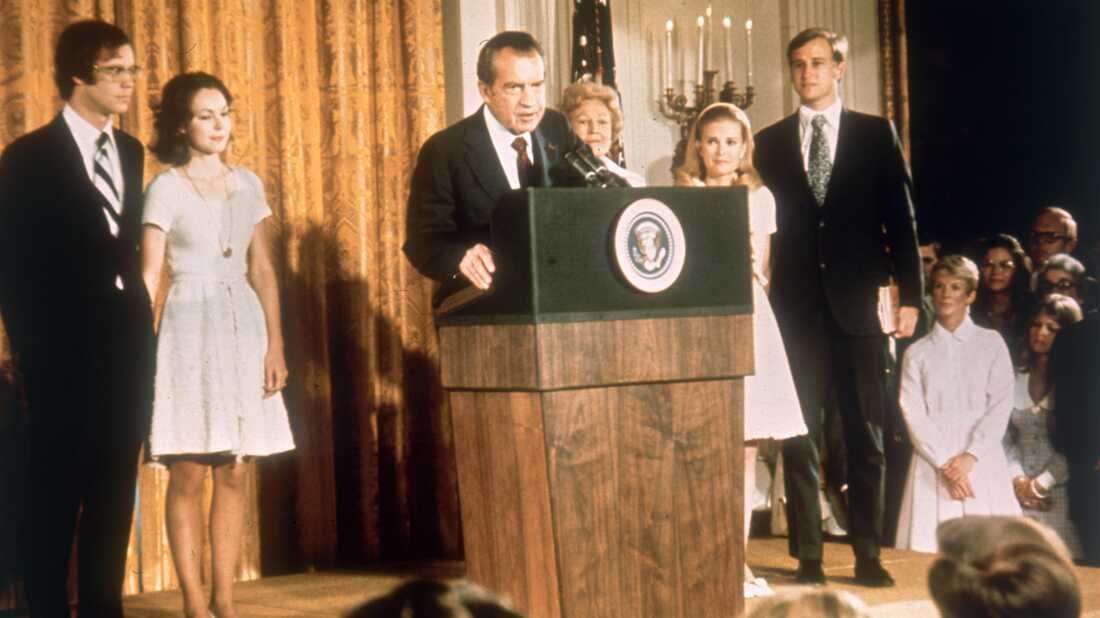Trump can’t keep his White House documents. This 1978 law is why : NPR

President Richard Nixon speaks at the White House on Aug. 9, 1974. He was preparing to leave the day after resigning because of the Watergate scandal. Nixon wanted to take his presidential documents with him, including his infamous tape recordings. But he was barred from doing so, and Congress passed a law that now requires all presidents to hand over their documents to the National Archives.
Keystone/Hulton Archive/Getty Images
hide caption
toggle caption
Keystone/Hulton Archive/Getty Images

President Richard Nixon speaks at the White House on Aug. 9, 1974. He was preparing to leave the day after resigning because of the Watergate scandal. Nixon wanted to take his presidential documents with him, including his infamous tape recordings. But he was barred from doing so, and Congress passed a law that now requires all presidents to hand over their documents to the National Archives.
Keystone/Hulton Archive/Getty Images
For the first two centuries of U.S. history, outgoing presidents simply took their documents with them when they left the White House. The materials were considered their personal property.
But for the past four decades, every presidential document — from notebook doodles to top-secret security plans — is supposed to go directly to the National Archives as the material is considered the property of the American people.
So when former President Donald Trump left office on Jan. 20, 2021, all his records should have traveled from the White House to the National Archives, according to Jason Baron, who served as director of litigation at the National Archives for 13 years.
“No president has the right to retain presidential records after he or she leaves office,” Baron said. “And so it is an extraordinary circumstance if presidential records are found in a former president’s residence or anywhere else under his control.”
But some records – both paper and electronic – were being kept at Trump’s Mar-a-Lago resort in Palm Beach, Fla. Officials found 15 boxes worth of documents from Trump’s property in January.
And on Monday, the FBI collected 11 more sets of documents, including five marked “top secret,” three marked “secret” and three labeled “confidential.” Those are the three separate levels for classified government documents.
In addition, one set of the top secret documents was labeled “top secret/sensitive compartmented information.” That means the material is considered so sensitive that event those with a top secret security clearance wouldn’t be able to see it unless they had a need to know.
Read More: Trump can’t keep his White House documents. This 1978 law is why : NPR

